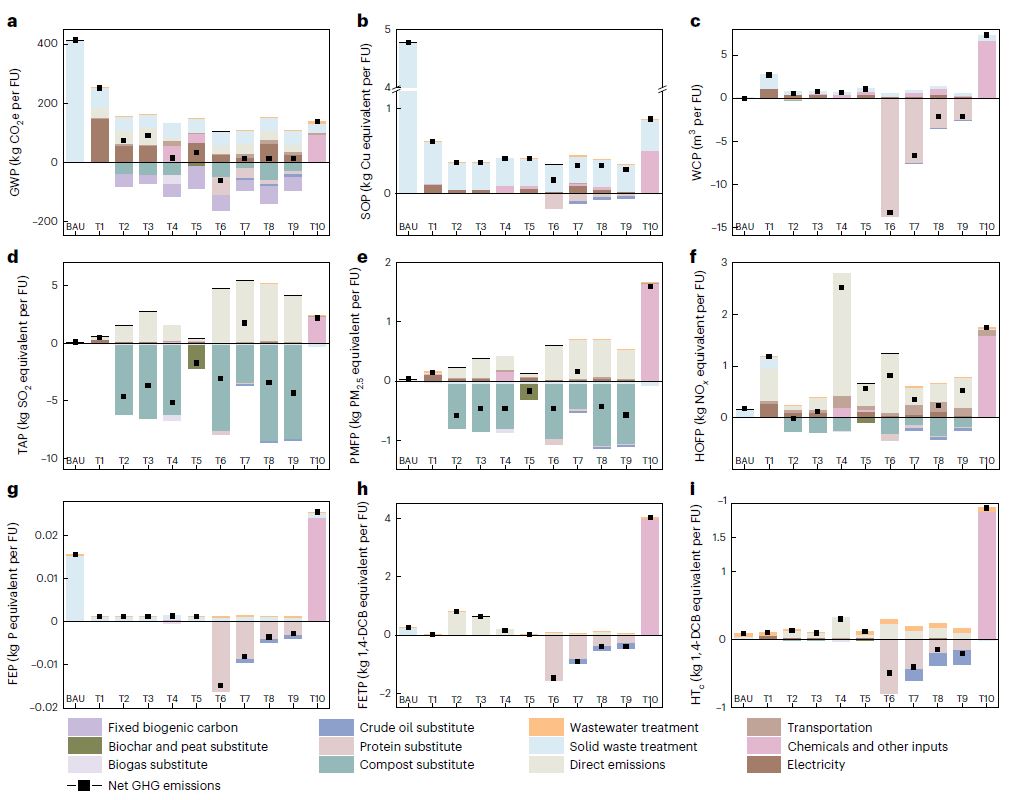September 18, 2023 | Nature Food | Source |
Introduction: Innovative recycling technologies are crucial for managing food waste, but their implementation often involves balancing various environmental, economic, and social factors. Monetization can help integrate these impacts and provide a comprehensive evaluation. In a study conducted by research team in Zhejiang province, China, a regionalized monetization model was used to assess ten common rural food waste recycling technologies.
Key findings: Compared to landfilling, technologies like biodrying and bioconversion are effective for waste management but require careful consideration of their broader impacts, such as higher initial costs or potential negative impacts on air quality. The monetization model used in this study allows for a detailed comparison of these trade-offs, showing that some technologies offer a good balance of environmental and economic benefits. The model developed can be applied to other sectors and regions to support decision-making towards more sustainable practices. This approach helps policymakers understand and manage the complex trade-offs involved in choosing the best waste recycling technologies.
Figure | LCA results of ten rural food waste treatment technologies. a–i, BAU, business as usual (landfilling); T1, mechanical drying; T2, biodrying and maturity; T3, solar-assisted composting; T4, underground anaerobic digestion; T5, heat pyrolysis carbonization; T6, bioconversion for black soldier fly (BSF); T7, bioconversion for BSF and bio oil; T8, bioconversion for red head fly (RHF) and bio oil; T9, heat hydrolysis and bioconversion; T10, enzyme production.





